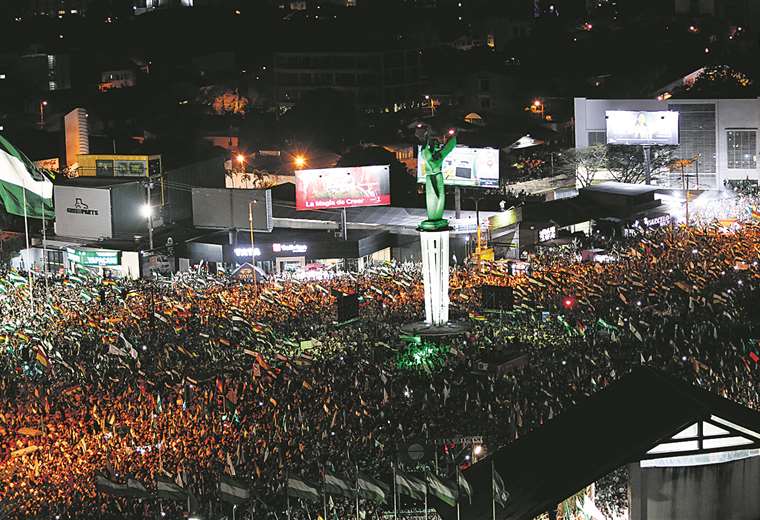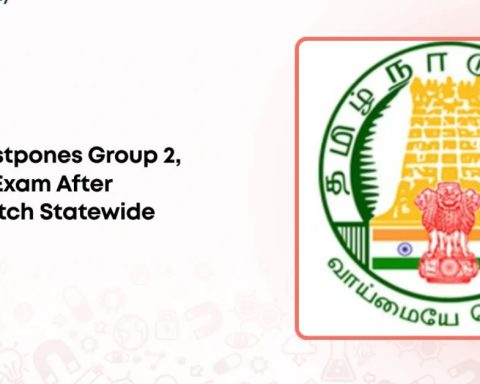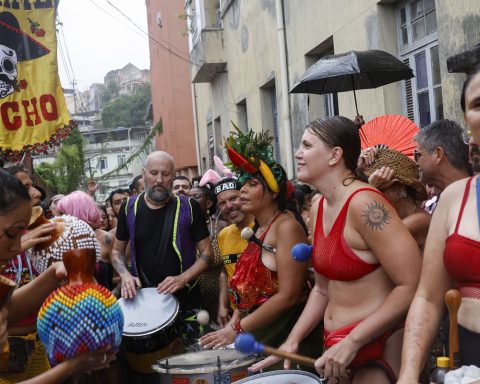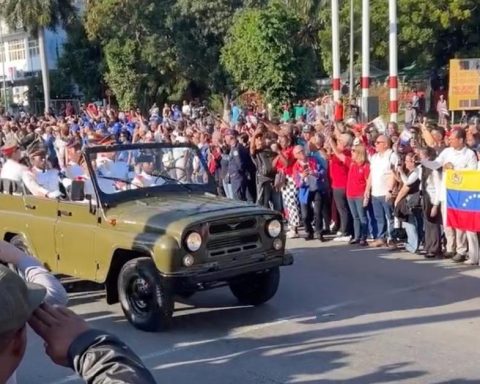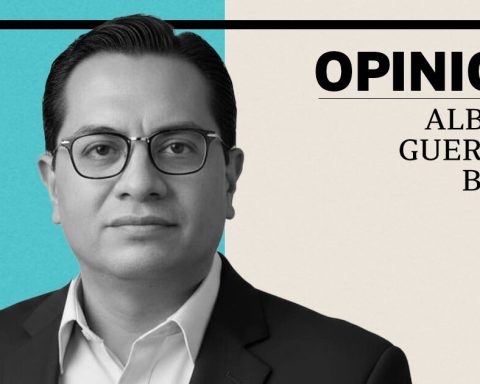November 16, 2022, 4:00 AM
November 16, 2022, 4:00 AM
The census date has already been far exceeded as demand. Analysts see that the 26-day strike has exceeded its goal because it has put federalism on the national agenda. The Committee for Santa Cruz ratified the continuity of the measure, but experts recommend that new strategies should now be generated.
in fact yesterday 15 of the 17 detainees accused of burning the campesinos’ headquarters and taking over the COD building were released. A couple of people who participated in the latter act pleaded guilty to aggravated robbery and received a four-year prison sentence. This is how one of the demands of the Sunday council was fulfilled, even in less than 72 hours.
The legal adviser of the Inter-institutional Committee, José Luis Santistevan, pointed out that beyond the datesSanta Cruz with its strike has achieved the Government’s commitment to distribute the resources and deliver the data for the seats to the TSE in 2024. “The strike has already met its objective,” he said.
The first vice president of the Civic CommitteeFernando Larach, celebrated the release of the young people who had been detained since Friday afternoon, but ratified that indefinite unemployment will be maintained until the redistribution of resources and the reallocation of seats are guaranteed.
By your side, The Catholic Church issued a statement in which it warned that the issue related to the census date “has already been overcome”. He made a new call to promote the culture of encounter based on positive and concrete signs, and they urge an end to the harassment between Bolivians and open authentic spaces for dialogue.
“The laws, the Constitution is the one that must order the steps that any region wants to take, we imagine that the civics of Santa Cruz considered this aspect. We do not believe that (federalism) is something totally negative, we must see the steps that it entails, it does not have to be by force, there must be dialogue and seek benefits for all,” said Aurelio Pesoa, president of the Episcopal Conference, about the approach of the council to analyze the relationship of Santa Cruz with the State.
The Church warns of the lack of understanding between Bolivians and regrets the suffering of the population 26 days after the pairor in the cross region. “72 hours are running out and hopefully the Assembly can rule as soon as possible (regarding a law that brings together the commitments of the Executive), but taking into account all the connotations that the census has, hopefully it will be soon and we will not reach the end of these 72 hours”, said the vice president of the CEB, Monsignor Ricardo Centellas.
From the United States, former minister Guido Áñez Moscoso pointed out that The relationship between Santa Cruz and the State will always be tense and he admitted that this dispute over the date of the census “was the most stupid that I know It is a day of an administrative act that the people of the INE had to prepare in 10 years. It is as if we were discussing that the TSE’s power was cut off, and that is why there are no elections, ”he ironized.
The effects of the census are what lead to a more in-depth fight: First, due to the distribution of resources, because there will be municipalities that are emptied and filled with inhabitants and, therefore, with fewer or more regions. There will also be departments that will need more parliamentarians, who are the ones who will represent a region.
He mentioned that in Santa Cruz almost 200,000 votes are required to elect a parliamentarian, while in others only 10,000 votes are neededor the famous indigenous constituencies, in which 2,000 votes are enough to be a deputy with the same rights as the others. “There is a disproportion to fix,” he said.
The other is the electoral roll. He assured that it grew from 2005 to 2020 by 99.74%, while the population increased by no more than 35%.. “El Alto is a strong bastion of the MAS, like Chapare, and in both regions it takes refuge from the conflict. “But today (the government) wants to pit El Alto against Santa Cruz, which will hurt the feelings of the people of Santa Cruz even more. We are not against them, we want Bolivians to live better, that the unity of the country be built from the strengthening of the regions. The plurinational State failed for this, they wanted to sell an indigenous state and we Santa Cruz were the white predators, when we are mestizos ”, he pointed out.
There he pointed out that although the Committee is on the right track by following the “constitutional channels to achieve a Constituent Assembly, it will have to reach an agreement. We are not happy with this relationship with the State, so we must rethink the relationship to find methods of coexistence, ”he asserted.
With these arguments, Áñez stated that The next strategy that Santa Cruz must follow is to project a Santa Cruz leadership on a national scale, “with enough openness and bargaining power to move forward. Surround yourself with teams that can advise you on different matters, what is called in political theory, shadow cabinets. Today I want to tell Rómulo Calvo and Vicente Cuéllar that the people have forced them to have a vision of the State. A broader vision”.
He reiterated that much broader and more universal leadership is required. “The vision of Campanario to achieve what Santa Cruz wants and the people demand from his leadership.”
You must have the strategic patience to keep going and the tactical rush to gain positions. “I think we have made progress in these 25 days, which we have not done in many years. Cruceñizar Bolivia was just a topic of a coffee talk, today it is already in the resolution of a council of two million people, an approach to the national State and the community of Santa Cruz and Santa Cruz leaders so that they can move forward and have that vision that is needed . It’s a long-term war.”I consider.
Analyst Carlos Hugo Molina agreed that the council put on the agenda the relationship of Santa Cruz with the State. “It has generated confusion in the Government. The date has passed, the ball is in the parties, in parliament, civic movements, citizens and the Government.
